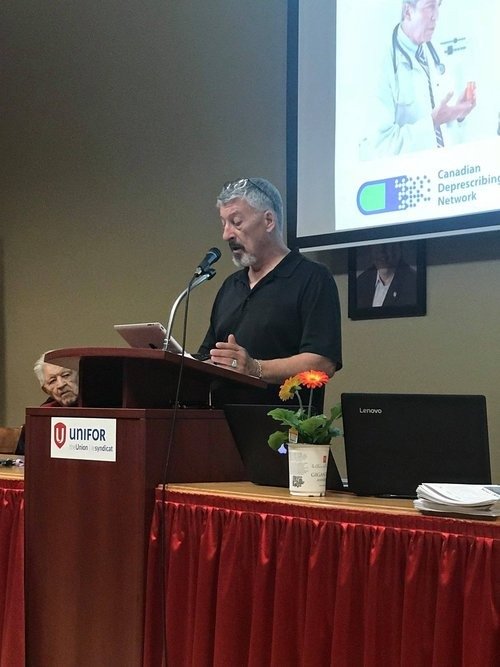
Johanna Trimble on tackling over-medication as a CADeN public partner
Johanna Trimble is a founding member of CADeN and a past co-chair and current member of our Public Awareness Committee. Here, she writes about her experience engaging as a public partner with our network to raise awareness of medication overload and how to prevent harm.

Summer heat waves and the medications that increase your risk
For many Canadians, summer is synonymous with having fun in the sun. Unfortunately, over the past several years, extreme heat waves have become increasingly common. This not only makes summer less enjoyable but can affect your health. Heat and humidity can cause heat stroke, dehydration, dizziness and fainting, hospitalizations, and even death.
Certain commonly used medications can make you more sensitive to the effects of heat. These medications can increase your risk of heat stroke and other heat illnesses. Some are available with a prescription and others are available off the shelf in your pharmacy. Are you taking any of these medications?

Doctor, do I really need an antibiotic?
What is antimicrobial resistance and why is it important?
When antibiotics no longer work to kill bacteria, this is called antibiotic or antimicrobial resistance. This means that infections caused by certain types of bacteria can become difficult or impossible to treat with the antibiotics we have now. Read more…

Are you the victim of a prescribing cascade?
What is a prescribing cascade?
A prescribing cascade can happen when you and/or your health providers do not realize new symptoms are actually the side effects of one of your medications. Read more…

What you need to know about anticholinergic medications
By Johanna Trimble and Janet Currie
Some medications you take for allergies, sleep, nausea, depression or incontinence belong to a group of medications called anticholinergic medications. Read more…

A pill for every ill? Make sure your medication is really helping you.
By Dr. Cara Tannenbaum, Geriatrician and Director, Canadian Deprescribing Network
Nowadays, it seems there is a choice of pills you can take for every symptom, big or small. Most people only have 10 minutes in their doctor’s office to discuss health issues. Read more…

Why are you taking a PPI?
By Dr. Cara Tannenbaum, Geriatrician and Director, Canadian Deprescribing Network
Mr. Turner considers himself to be a typical healthy 67-year-old, but late last year he started to get sharp burning sensations in his stomach and throat, especially after meals. Read more…

Community champion in the spotlight: Herb John convinced we can make a difference
By Jennie Herbin, Community Engagement Coordinator, Canadian Deprescribing Network
Herb John was waiting to board a plane to Ottawa for a Canadian Transportation Agency meeting when I caught him on the phone this weekend. Read more…
